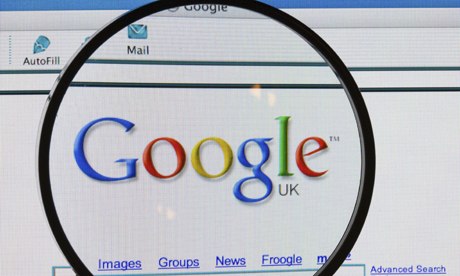
The European Commission has rejected Google's revised proposals to settle a three-year antitrust row, its competition commissioner Joaquin Almunia said today.
"The latest offer as submitted by Google in October ... the latest proposals are not acceptable in the sense that they are not proposals that can eliminate our concerns regarding competition," Almunia said in a Spanish radio interview, according to a partial transcript provided by the European Commission.
Almunia said that, in particular, Google's latest offer did not remove the Commission's concerns about the way Google's rivals in so-called vertical searches – searches for price comparison products – were being treated.
Asked if there would be sanctions against Google, Almunia said: "No, no, no ... At this moment, there is little time left, but the ball is still in Google's court. But within a short time frame, the ball will then be here (with the Commission) and then it will be the moment to take decisions."
Almunia has indicated that he wants to settle the case in 2014, but it is unclear how he would do this without either Google yielding on some parts of the complaint, or by his overriding objections from complainants.
Google initially proposed changes to the way it presents some search results in April, but saw those rejected by complainants after Almunia's office made them public for "market testing", which seeks to gauge whether suggested remedies are acceptable. In September it sent revised proposals to Almunia's office – but those too were generally rejected in the market testing phase.
Google said in a statement: "We've made significant changes to address the EC's concerns, greatly increasing the visibility of rival services and addressing other specific issues."
A key element of its most recent proposals would have given some rival shopping sites limited space as part of a larger Google Shopping box when people made what looked like commerce-related searches. Sites would have had to bid in an auction system to be included in the space – which led to complaints that Google would make money whether or not people clicked on its own links or those of rivals.
Complainants including Microsoft-funded lobbying group Icomp expressed delight at Almunia's decision. David Wood, legal counsel for ICOMP, said: "Our members will welcome vice president Almunia's decision that Google's second set of proposals are 'unacceptable'. Google was offered not one but two unique opportunities to reach an agreement with the Commission and yet their actions show a deep lack of willingness to change their harmful practices.
"Vice president Almunia now has the opportunity to ensure a legacy that will see European online businesses flourish. It is now vital that the Commission use this opportunity to enforce the competition rules and ensure that a level playing field is restored not only for those companies that have been harmed but also to support consumer choice and the wider European economy."
If Almunia were to issue a formal statement of objections against Google, it would lead to a court case, which could lead to a fine as high as $5bn – 10% of the company's global revenues. But if he overrides objections from complainants, they might sue the EC and argue that it has failed to maintain a competitive market.

